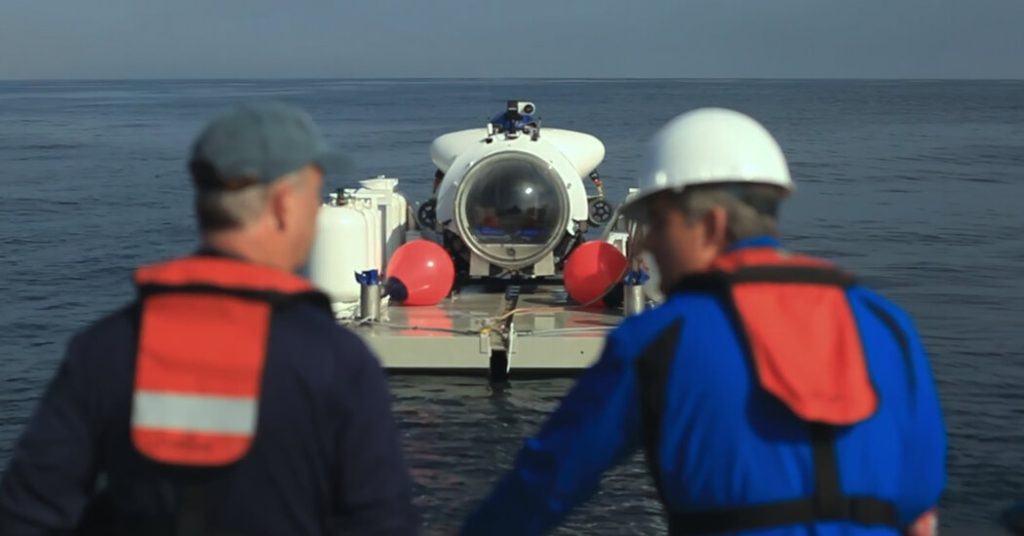It was only a matter of time before a flurry of documentaries about the Titan submersible disappearance turned up on streaming platforms. The event captured the world’s attention in 2023 after the vessel, operated by the company OceanGate Expeditions, vanished in the North Atlantic, triggering a days-long search for survivors.
Netflix’s “Titan: The OceanGate Disaster” offers an adequate rundown of the story. Directed by Mark Monroe, the film wisely does not linger in the lurid details of the Titan’s catastrophic end, and instead uses an investigative framing that sketches the company’s origins and use of carbon fiber while chronicling a series of problematic dives leading up to its final plunge. As it catalogs OceanGate’s failures, the documentary spotlights the faulty judgment of one man: the company co-founder and chief executive Stockton Rush, who died in the implosion.
That Rush mismanaged his employees and played fast and loose while priming Titan is, by this point, old news. And creatively, “Titan: The OceanGate Disaster” often relies on familiar techniques, such as a continuous, synth-heavy score and sensationalist chyrons for interviewees: the insider, the investigator, the whistleblower.
But audio recordings that capture Rush in fits of frustration, alongside startling footage of him cutting corners during an expedition — “close enough,” he declares, after reaching 3,939 meters on a dive meant to hit 4,000 — lay bare his grandiosity. Add to that the haunting sound of carbon fibers breaking at depth and one appreciates the case for giving this well-known story an audiovisual treatment, even if it is a standard one.
Titan: The OceanGate Disaster
Not rated. Running time: 1 hour 51 minutes. Watch on Netflix.


